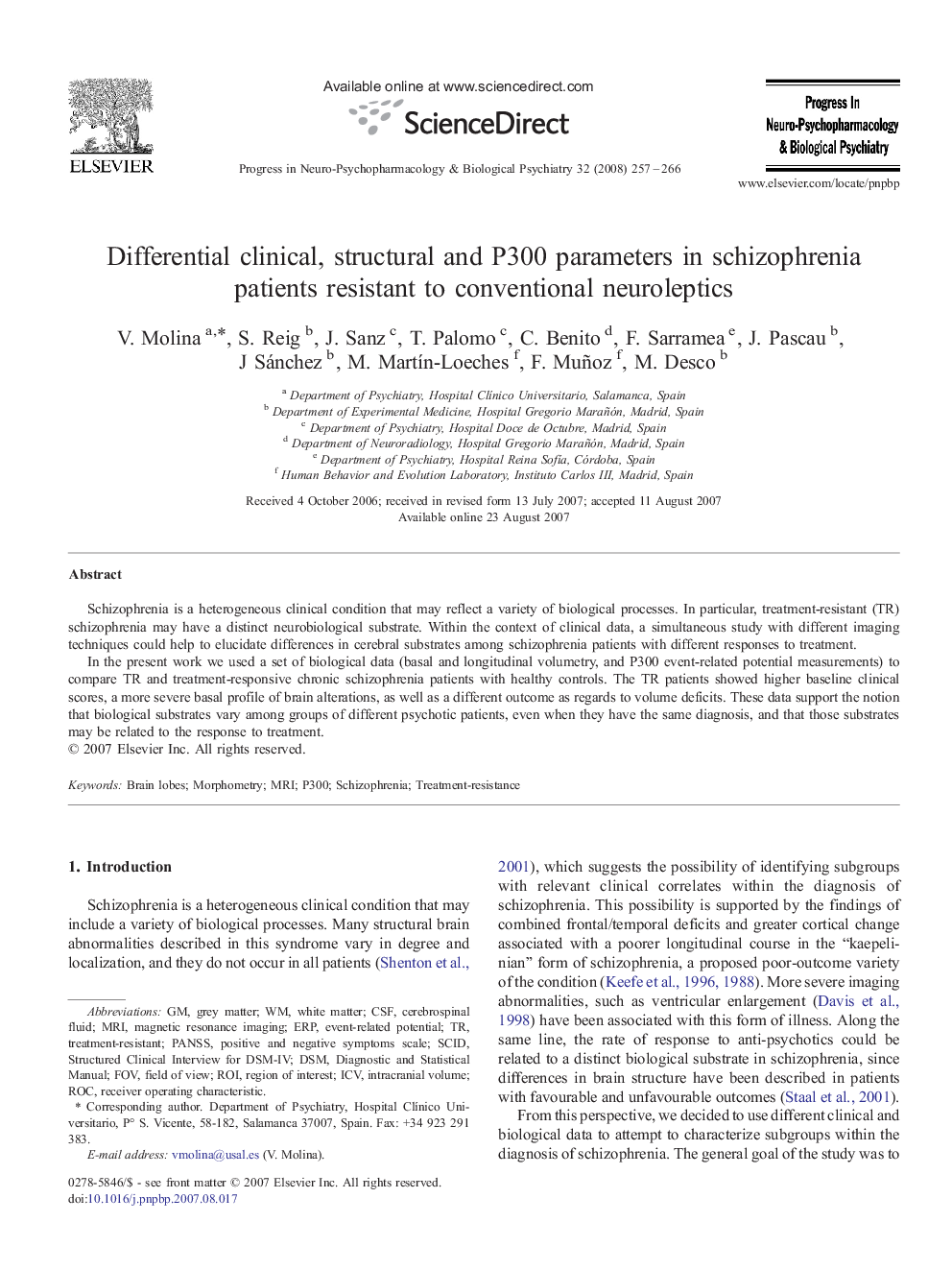| Article ID | Journal | Published Year | Pages | File Type |
|---|---|---|---|---|
| 2565728 | Progress in Neuro-Psychopharmacology and Biological Psychiatry | 2008 | 10 Pages |
Schizophrenia is a heterogeneous clinical condition that may reflect a variety of biological processes. In particular, treatment-resistant (TR) schizophrenia may have a distinct neurobiological substrate. Within the context of clinical data, a simultaneous study with different imaging techniques could help to elucidate differences in cerebral substrates among schizophrenia patients with different responses to treatment.In the present work we used a set of biological data (basal and longitudinal volumetry, and P300 event-related potential measurements) to compare TR and treatment-responsive chronic schizophrenia patients with healthy controls. The TR patients showed higher baseline clinical scores, a more severe basal profile of brain alterations, as well as a different outcome as regards to volume deficits. These data support the notion that biological substrates vary among groups of different psychotic patients, even when they have the same diagnosis, and that those substrates may be related to the response to treatment.
